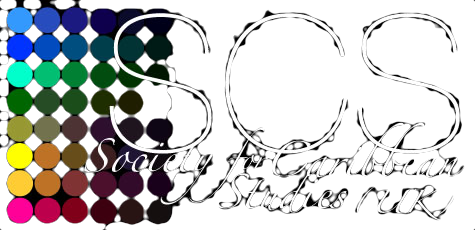
London-Miyo, Camille
PhD doctoral researcher @ Stephen Lawrence Research Centre at DMU
Bio
Camille London-Miyo is a PhD doctoral researcher within the Stephen Lawrence Research Centre at DMU. Her research focuses on black educators who are navigating the dynamics of racism in Leicester Schools. Camille has been a teacher and a middle and senior leader in inner city schools for over thirty years. She is also an active trade unionist and became the first black president in the history of Leicester teachers’ unions in 2018. Camille is a co-founder of Leicester Black Educators Network. She is a community activist who helps to build parent/ community networks to give support to parents of Black children whilst challenging the narrative of the “underachievement of Black pupils in UK schools". Camille is also a co-founder of the Phoenix Agenda Supplementary School based in Leicester. Her understanding of the complexity and importance of involving students, parents and communities in order to achieve genuine and sustained progress in education at all levels has been the foundation of her work to date, by establishing and working with teacher networks and professional development programmes across the UK. Camille’s research interests include: black teachers in education - recruitment, retention and progression; strategies to decolonise the UK curriculum; radical pedagogies that challenge empirical ideas about teaching and learning; developing a global “English “Literature Curriculum as part of a holistic anti-racist strategy in schools. She has written a chapter entitled: Education, race and the decolonisation of the curriculum in Beyond the Blockade - Education in Cuba (2019). She is also co organiser of the Black Educators Book Club - a series of virtual book club events in collaboration with Malcolm Richards (University of Exeter.) She has co delivered a four month Racial Literacy programme with Dr Yusef Bakkali for secondary heads and curriculum leads in Leicester Schools. Camille has also worked with Dr Amanda Arbouin on an upcoming publication evaluating SLRC's Teaching to Transform programme
Geographical location : Leicester, UK
Research Area and Interest : black teachers in education - recruitment, retention and progression; strategies to decolonise the UK curriculum; radical pedagogies that challenge empirical ideas about teaching and learning; developing a global “English “Literature Curriculum as part of a holistic anti-racist strategy in schools
Social Media
Panel(s)
- Summary:
Presentation(s)
- Summary: This article examines how three teachers who identify as Black and are members of a Black self-organising groups within an education trade union, and have used educational initiatives to respond to historical moments of importance to their communities. The membership in education trade unions in England and Wales is made up overwhelmingly of white-majority teaching staffs. Black teachers have long developed informal self-organising groups to engage in critical discourses, which respond to race inequities in research, pedagogy, creativity, activism, and acts of solidarity. These informal initiatives often transcend socio-cultural, political, and geographical locations and extend to collaboration with wider membership, educational institutions, and communities with whom such historical moments do not have the same significance or importance to. There is a paucity of research which examines the Black self-organising groups and the education trade union movement in England and Wales. There is also limited research which centres Black teachers teaching experiences in relation with personal and professional identity formations, and implications and impacts for learning as a condition for, and outcome of, advancing anti-racist practices. The data is taken from a research project, written with teachers who identify as Black and work in schools, colleges, and higher education institutions. Each are members of a self-organising community in a national education trade union. Teachers represent an intersectional community of teachers. In this presentation we offer vignettes from two of the teachers, who have shared experiences of an initiative which emerged from the Black teachers self-organising community in response to historical moments of importance to their Black communities. we draw upon counter storytelling as tool of analysis to locate these vignettes as example of Black teacher educational cultures. We consider linkages between Black teacher identity formations, educational cultures within and across Black communities, and possibilities for professional learning. Critically I also consider implications in highlighting historical moments of importance to Black communities, teachers and self-organising communities’ initiatives within professional learning opportunities as a condition for, and outcome of, advancing race equity for all.
